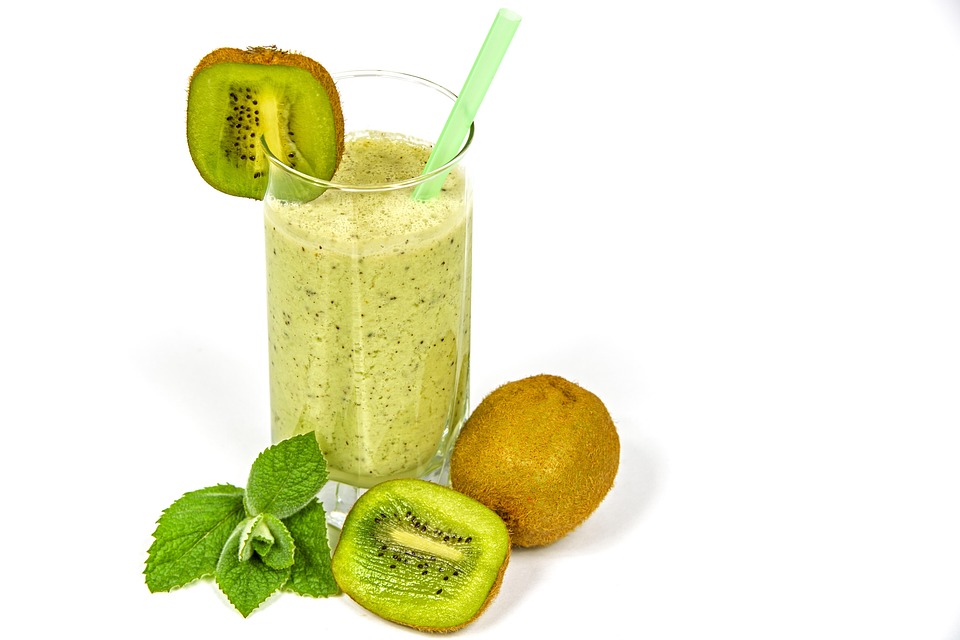5 Reasons Kefir Boosts Your Gut Flora Health
Midday slumps often lead us to reach for a cup of coffee or sugary snacks, but what if the key to a more balanced energy level lies in our gut? Kefir, a tangy fermented beverage, is gaining attention for its potential to enhance gut flora health. Whether you’re already a fan or have yet to try it, let’s explore five compelling reasons why incorporating kefir into your diet could be beneficial for your gut.
1. A Diverse Range of Probiotics
Kefir is renowned for its impressive array of probiotics—live microorganisms that provide health benefits when consumed in adequate amounts. Unlike many other fermented foods, kefir contains a greater variety of these beneficial bacteria.
Research indicates that the unique fermentation process of kefir leads to a broader spectrum of bacterial strains compared to yogurt. A study published in the Journal of Dairy Science highlighted that kefir typically includes at least 30 different strains of bacteria and yeast, such as Lactobacillus, Leuconostoc, and various Saccharomyces yeasts (Kurtzman et al., 2016). This diversity is essential because various strains support different aspects of health, creating a more robust gut ecosystem.
Moreover, research has shown that a diverse microbiome is key to improving gut health, immune response, and even mental health (Hajishengallis, 2015). The greater the variety of microbes present, the better our gut can adapt and respond to dietary changes and potential pathogens.
2. Improved Digestion and Nutrient Absorption
For many, digestive discomfort is an everyday reality, and this is where kefir shines again. The probiotics in kefir can help balance the gut microbiota, leading to improved digestion. The beneficial bacteria help break down lactose, making kefir a suitable option for those with lactose intolerance, unlike many dairy products.
In a clinical trial, participants who consumed kefir showed significant improvements in lactose digestion and overall gut health metrics compared to those who didn’t (Correa et al., 2018). The presence of enzymes produced by probiotics in kefir assists the body in absorbing essential nutrients such as vitamins and minerals. As a result, regular consumption may not only promote healthier digestion but could also enhance your overall nutritional intake.
3. Support for Immune Function
Kefir doesn’t just nurture flora within the gut; it also plays a pivotal role in enhancing immune function. The gut is home to a large part of our immune system, and a balanced gut microbiota can influence our body’s ability to fend off infections and disease.
Research shows that probiotics can enhance the production of specific antibodies and immune cells, promoting the body’s ability to respond to pathogens. In a study published in the American Journal of Clinical Nutrition, animals consumed probiotics showed a marked increase in immunoglobulin levels compared to those without probiotic intake (Sanders, 2015). This suggests that regular consumption of kefir may bolster our immune response, helping us stay healthier throughout the year.
4. Potential Mood and Mental Health Benefits
The gut-brain axis—a term that describes the communication between our gut and our brain—is a captivating area of research. Emerging studies indicate that a healthy gut microbiome can positively influence mental health.
Kefir, with its probiotic content, may offer mood-enhancing benefits. A study in Nutritional Neuroscience found that specific strains of probiotics can potentially alleviate anxiety and depressive symptoms (Savigny et al., 2019). The research highlights how beneficial bacteria like those found in kefir can produce neurotransmitters such as serotonin, often dubbed the “happy chemical,” which helps regulate mood and emotional well-being.
While these findings are promising, individual responses can vary, and it’s essential to approach gut health holistically. Including kefir as part of a balanced diet may contribute to emotional resilience, but it should not replace professional mental health support when needed.
5. Enhanced Gut Barrier Function
One of the critical roles of gut bacteria is maintaining the integrity of the gut barrier—our first line of defense against harmful substances. A compromised gut barrier can lead to various health issues, including inflammation, food sensitivities, and autoimmune diseases.
Kefir may help strengthen this barrier. A study featured in the British Journal of Nutrition demonstrated that probiotics can improve intestinal permeability (Alder et al., 2016). This means that regular consumption of kefir may reduce the risk of “leaky gut,” where substances leak into the bloodstream, triggering inflammation and other health challenges.
Furthermore, by reinforcing the gut lining and promoting the growth of beneficial bacteria, kefir can contribute to an overall healthier gut environment.
FAQs
Q1: How much kefir should I drink daily?
A: While there are no strict guidelines, many health experts recommend 1-2 cups of kefir per day to maximize its benefits. Adjust according to your tolerance and preferences.
Q2: Can I make kefir at home?
A: Yes! Making kefir at home is quite simple. All you need is kefir grains and milk. With just a few steps, you can enjoy fresh, homemade kefir tailored to your taste.
Q3: Are there any side effects to consuming kefir?
A: Generally, kefir is safe for most people. However, those with dairy sensitivities may experience discomfort. It’s always a good idea to start with small amounts to see how your body reacts.
Q4: Can kefir replace my daily probiotic supplement?
A: While kefir can be a great source of probiotics, it’s important to note that the specific strains in supplements may vary. If you’re relying on particular strains for specific health issues, it’s best to consult with a healthcare professional.
Conclusion
Incorporating kefir into your diet offers a variety of health benefits that extend beyond just gut health. From boosting probiotic diversity to potentially enhancing mood, this tangy drink holds promise for a more balanced and healthier life.
As you navigate your wellness journey, consider making room for a glass of kefir in your routine. Each sip supports a vibrant gut flora, setting a foundation for overall well-being. Remember to listen to your body and adjust your intake based on your health needs. The road to a healthier gut might just begin with a simple pour.
References
- Kurtzman, C., et al. (2016). “Kefir: A Complex Fermented Dairy Product.” Journal of Dairy Science.
- Hajishengallis, G. (2015). “The origin of chronic inflammation.” Nature Reviews Immunology.
- Correa, J., et al. (2018). “Kefir Improves Lactose Digestion in Adults.” Journal of Nutritional Health & Food Engineering.
- Sanders, M. E. (2015). “Impact of probiotics on health.” American Journal of Clinical Nutrition.
- Savigny, P., et al. (2019). “Probiotics for Mental Health.” Nutritional Neuroscience.
- Alder, D. R., et al. (2016). “Probiotics and Gut Barrier Function.” British Journal of Nutrition.
Get Your FREE Natural Health Guide!
Subscribe now and receive our exclusive ebook packed with natural health tips, practical wellness advice, and easy lifestyle changes, delivered straight to your inbox.




